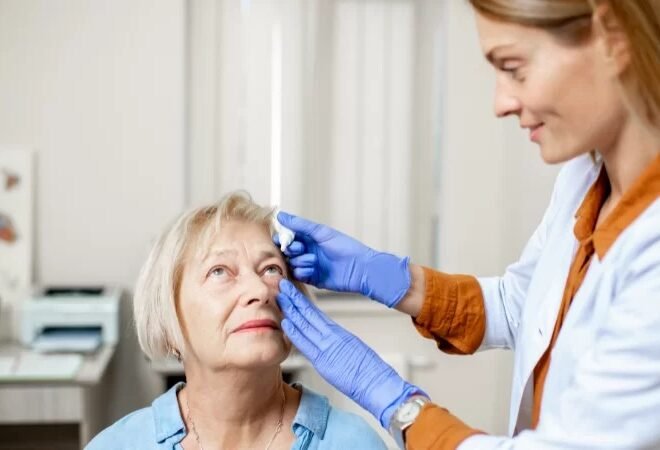
A Senior’s Guide to Eye Care Through Diet and Nutrition
Learn how seniors can protect their vision with proper diet and nutrition, focusing on eye-friendly foods that support long-term eye health.
Good vision is important at every age. Taking care of your eyes is not just about wearing glasses or visiting the eye doctor.
What you eat can also help protect your eyes and improve your vision. A healthy diet gives your eyes the nutrients they need to stay strong and work properly.
Here are some simple diet and nutrition tips to support your eye health.
Eat More Leafy Greens
Leafy green vegetables are full of vitamins and nutrients that help your eyes. Spinach, kale, and collard greens are rich in lutein and zeaxanthin. These nutrients are found in the eye and help filter harmful light. They may also protect your eyes from age-related problems like cataracts and macular degeneration.
You can eat these greens in salads, soups, or smoothies. Try to include them in your meals at least a few times a week. Cooking them lightly can help your body absorb the nutrients better.
Add Colorful Fruits and Vegetables
Brightly colored fruits and vegetables are good for your eyes. Carrots, sweet potatoes, red peppers, and pumpkins are rich in beta-carotene, a form of vitamin A. This vitamin helps you see in low light and keeps your eyes moist.
Oranges, grapefruits, and berries are high in vitamin C. This antioxidant helps protect your eyes from damage and may slow the progress of cataracts. Try to eat a variety of colors every day to get the full range of nutrients your eyes need.
Include Omega-3 Fatty Acids
Omega-3 fatty acids are healthy fats that support eye health. They help prevent dry eyes and may protect against macular degeneration. Good sources include fatty fish like salmon, sardines, and tuna. You can also get omega-3s from flaxseeds, chia seeds, and walnuts.
If you don’t eat fish often, talk to your doctor about omega-3 supplements. They can be a good way to make sure you’re getting enough of these important nutrients.
Keep Zinc and Vitamin E in Your Diet
Zinc helps your body use vitamin A and is important for night vision. You can find zinc in foods like beef, chicken, eggs, and beans. Pumpkin seeds and cashews are also good sources.
Vitamin E is another antioxidant that protects your eyes from damage. It may help slow age-related vision loss. Foods high in vitamin E include almonds, sunflower seeds, and spinach. A small handful of nuts or seeds each day can support eye health.
Special Considerations for Older Adults
As we get older, our eyes may need extra care. Certain nutrients become more important with age. Seniors should pay special attention to their diet to help protect their eyesight. This is especially true for people managing health conditions like diabetes or high blood pressure, which can affect vision.
Following a balanced diet rich in antioxidants, omega-3s, and essential vitamins can make a big difference. In fact, senior diet and vision care should go hand in hand to maintain eye health and reduce the risk of age-related vision problems.
Explore Senior’s Guide to Eye Care
Good eye health starts with good nutrition. Eating leafy greens, colorful fruits and vegetables, omega-3 rich foods, and foods high in zinc and vitamin E can all support your vision.
These simple diet choices can help protect your eyes and improve how well they work. By paying attention to what you eat, you can take an easy and natural step toward keeping your eyes healthy for years to come.
Looking for more tips and ideas? We’ve got you covered. Check out some of our other posts now.


